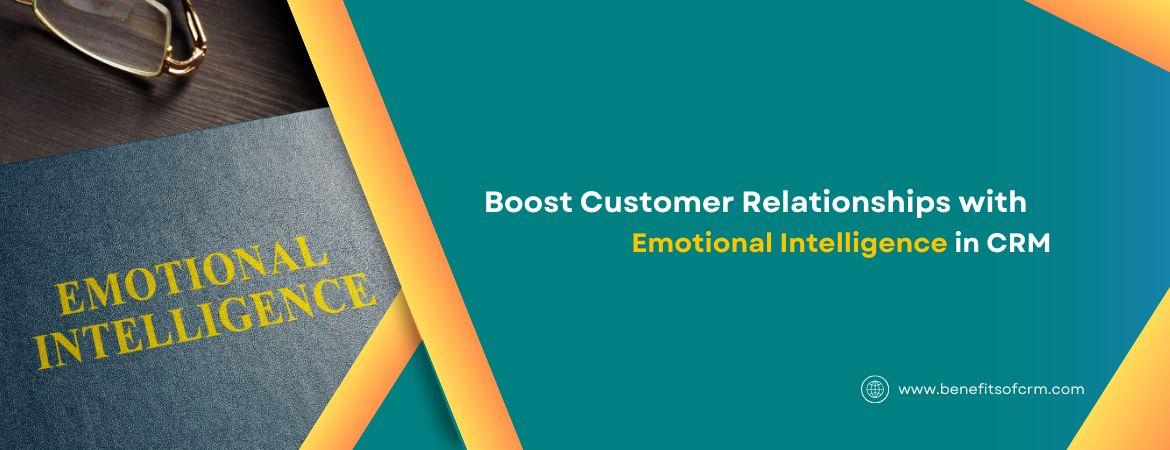In today’s fast-paced world, businesses use technology for almost everything, including how they manage customer relationships. However, with so much automation, many companies are realizing the importance of the human touch. This is where emotional intelligence (EQ) comes in. By integrating emotional intelligence EQ into customer relationship management (CRM), businesses can build stronger, more personal relationships with their customers. Using human-centric CRM solutions allows companies to combine the power of technology with emotional insights, giving them a competitive edge.
Table of Contents
What is Emotional Intelligence in CRM?
Emotional intelligence is about understanding emotions—both your own and others’. In the context of CRM, it means recognizing how customers feel and adjusting how you interact with them based on those emotions. Traditionally, CRM platforms focus on tracking customer data like purchase history and preferences, which is helpful but limited. Now, more businesses are integrating emotional intelligence into their CRM systems, allowing them to respond to customers in ways that feel more personal and empathetic.
Why Emotional Intelligence is Crucial in CRM?
Customer expectations have evolved. Nowadays, people don’t just want products or services—they want meaningful interactions. According to a report by Salesforce, 84% of customers say being treated like a person, not just a number, is important to winning their business. This is where emotional intelligence shines. When companies understand how customers feel, they can respond in ways that build trust and loyalty. Human-centric CRM solutions make it possible to collect emotional cues from customer interactions, so businesses can offer responses that truly resonate.
How Human-Centric CRM Solutions Use Emotional Intelligence?
With more companies adopting emotional intelligence in their CRM, let’s explore some of the ways human-centric CRM solutions are making a difference:
1. Sentiment Analysis
Modern CRM systems often use AI to analyze customer sentiment. This technology scans emails, social media posts, or customer chats to detect emotions like happiness or frustration. By understanding the tone of a customer’s message, businesses can offer the right kind of support.
• Example: Zendesk’s CRM system offers sentiment analysis. It flags messages where customers may be upset, allowing customer service teams to step in and address problems before they escalate. This proactive approach not only helps resolve issues quickly but also prevents customers from leaving.
2. Personalized Interactions
Emotional intelligence helps CRM platforms go beyond standard responses by personalizing each interaction based on how a customer feels. Human-centric CRM solutions analyze both customer data and emotional patterns to help businesses craft more meaningful interactions.
• Example: Netflix uses a CRM strategy that suggests personalized recommendations based on user behavior and emotional responses to previously watched content. By tailoring suggestions in this manner, users feel understood, strengthening their connection to the platform.
3. Empathy-Driven Chatbots
Chatbots are becoming more common in customer service, and now they’re getting smarter. Instead of offering robotic, pre-written responses, human-centric CRM solutions enable chatbots to show empathy in conversations. For example, if a customer expresses frustration, the chatbot can acknowledge the problem and offer a more compassionate response.
• Example: H&M uses a chatbot with emotional intelligence to improve the shopping experience. When customers inquire about items that are out of stock, the bot suggests alternatives and expresses understanding of their disappointment. This level of empathy helps create a better customer experience.
4. Training Customer Service Teams
Beyond technology, emotional intelligence is crucial for human employees too. Many companies now train their customer service teams to use emotional intelligence in every interaction. When paired with human-centric CRM solutions, employees are better equipped to recognize customer emotions and adjust their communication styles to handle situations more effectively.
• Study Insight: A study by TalentSmart found that 58% of job performance in customer-facing roles is directly related to emotional intelligence. Customer service agents with high emotional intelligence can handle stress better, resolve conflicts more smoothly, and leave customers feeling valued.
Emotional Intelligence and Data-Driven Decisions
While emotional intelligence is about understanding and managing emotions, it doesn’t mean businesses should ignore data. The most effective CRM strategies combine both emotional insights and data-driven decisions. This gives companies a complete view of their customers—one that includes both facts and feelings.
For example, CRM platforms collect useful data on customer behavior, preferences, and buying habits. But by adding emotional intelligence, human-centric CRM solutions can also track how customers feel at various stages of their journey. This combination allows businesses to offer more thoughtful and personalized responses, leading to better results.
• Example: Salesforce Einstein AI uses predictive analytics to look at past customer interactions and emotional patterns. It then suggests specific actions to sales or marketing teams, allowing them to connect with customers in a way that feels more authentic and personal.
What’s Next: AI Meets Emotional Intelligence?
As artificial intelligence (AI) continues to evolve, its ability to predict and understand emotions will become even more powerful. CRM systems will soon be able to recognize subtle emotional shifts and help businesses respond in ways that feel even more human. This blend of AI and emotional intelligence is expected to reshape how companies interact with customers.
• Stat Insight: By 2025, Gartner predicts that 60% of B2B sales teams will use data-driven sales models that blend AI with emotional intelligence. This means CRM platforms won’t just rely on numbers—they’ll understand customer emotions, making interactions feel more genuine.
Conclusion: Why Human-Centric CRM Solutions Matter?
In an increasingly automated world, emotional intelligence is the key to building real, lasting relationships with customers. By investing in human-centric CRM solutions, businesses can connect with customers in ways that go beyond just data and automation. These solutions help companies understand what their customers are feeling, respond in a personal and empathetic way, and ultimately create experiences that keep customers coming back.
As technology continues to develop, companies that blend emotional intelligence with smart CRM strategies will stand out. This combination of data and emotion is what will help businesses thrive in today’s competitive landscape.
